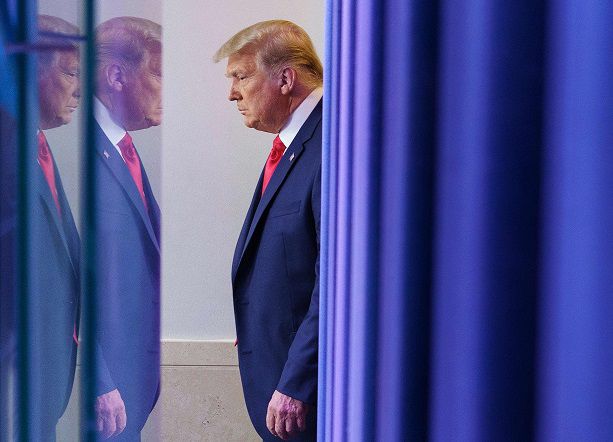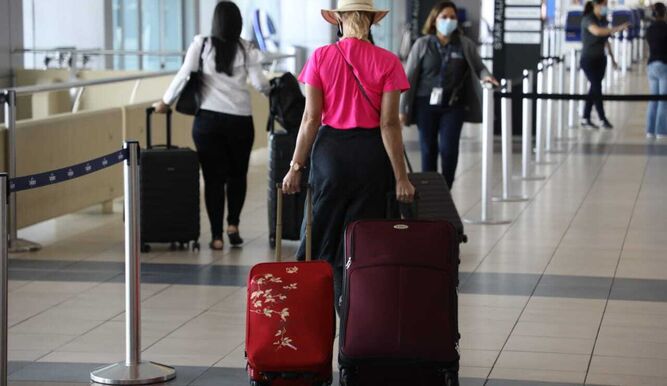WORLDVIEW: Trump's anti-Russia stance

W
By Jonathan Power
President Donald Trump has been exonerated of collusion with Russia. As I wrote a while back I expected this conclusion from the investigation carried out by Robert Mueller.
The big clue lay in Trump’s anti-Russian posture. Trump has continued the expansion of Nato which Russia, more than understandably, sees as a provocative, unfriendly and dangerous move.
Then there is the unwillingness to step forward to negotiate an end to the Ukrainian situation. The US, under the presidency of Barack Obama, refused to countenance President Vladimir Putin’s suggestion that UN peace-keeping troops be deployed in southern and eastern Ukraine, and Trump has continued that policy.
Then there’s the seeming refusal to extend the treaty (New START ) that dramatically lowers the number of intercontinental nuclear missiles on each side.
Trump has also thrown money at the Defence Department while cutting social budgets, vowing to beef up America’s nuclear forces. Recently he unilaterally ended one of the great achievements that came towards the end of the Cold War, the treaty abolishing intermediate-range nuclear forces in Europe.
Collusion with Russia? It hardly seemed likely given this record and now it has been proved to be a red herring.
Confrontation
What I have long feared is not collusion but the effect that Trump’s confrontational policies will have on the peace of the world. When the Cold War ended in 1991 we had a big pan-European peace within reach and we blew it away. Analysts of the stature of Zbigniew Brzezinski, George Kennan, and Henry Kissinger criticized the way the expansion of Nato was done and how there was a lost opportunity of binding Russia into Western Europe. Presidents Bill Clinton and George W. Bush launched that hostile policy but Obama continued it.
Nuclear war is always a possibility as long as the weapons and the hostility that is now prevalent, exist. Apart from an accidental launch or the action of rogue officers (as have nearly happened in the past according to Pentagon sources), there’s always the chance that mistaken policies will drive the US, Russia and China to military confrontation.
A sane finger (or fingers) on the nuclear button becomes a necessity if the world isn’t to be partly devastated. I can cross my heart and say that Presidents John F. Kennedy, Lyndon Johnson, Jimmy Carter, Ronald Reagan, George H.W. Bush and Barack Obama would never have initiated a nuclear attack. But I’m not so sure about Richard Nixon and George W. Bush. As for Donald Trump I put him in the second camp. I wouldn’t trust him.
Crises can pop up seemingly out of nowhere and a steady hand in the Oval Office is absolutely necessary. Trump doesn’t like Russia, albeit he has had so far a civilized personal relationship with Putin. But, given his attitude, that could turn sour at any moment.
The worst of it is that a majority- albeit a small one- of Americans might support him. A number of surveys carried out have shown that over the years Americans have become more tolerant of the use of nuclear weapons if they felt the homeland was truly threatened, even by a non-nuclear attack.
At the time of the nuclear bombings of Hiroshima and Nagasaki President Truman rejected advice to authorize a third, saying he didn’t want to take the lives of “all those kids”.
Yet we know he considered using them if the Soviet advance into Japan from the north continued. And at the time of the Korean War General Douglas MacArthur, the chief commander, recommended they be used in significant numbers to stop the Chinese advance into the north. As recently as 1965 during the Vietnam War the Pacific Theatre Commander asked Washington for permission to use tactical nuclear weapons.
Fortunately, we know today that the so-called “elite” policy makers wouldn’t accept the use of nuclear weapons.
This is the conclusion of an exhaustive study made of a “war game” involving both very senior policy makers (the “elite”), past and present, and their juniors. It’s written up by Reid Pauly in the current issue of Harvard’s International Security. The simulation, organized under the auspices of the Pentagon, pitted the home side against an unnamed foreign power during wartime.
Twenty-six games were played. In only two resulted in the use of nuclear weapons. But it wasn’t ethical reservations or worries about triggering more proliferation that gave the players pause, it was an “apprehension about domestic, global, allied or peer reputational costs”. They didn’t want to become a pariah by being the first to advocate use since 1945. They were prepared to suffer conventional war defeats rather than use nuclear weapons.
So what about the “button”? In reality the president’s command to use them has to pass through various Pentagon layers before launch officers get their orders. I doubt, given the deep reservations of the “elites”, that it would be obeyed.





